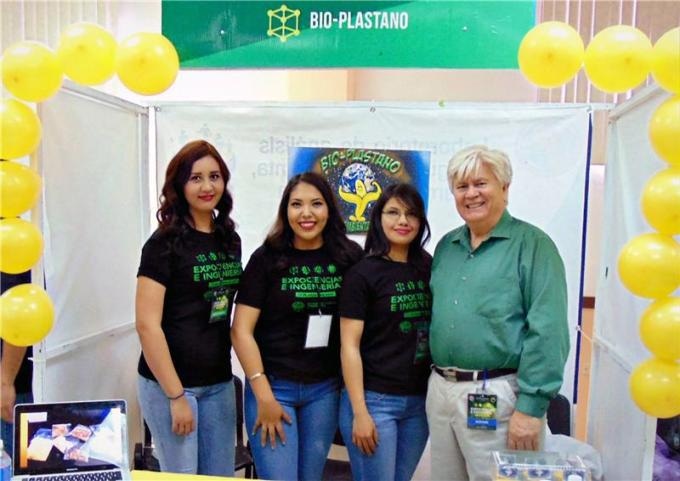Jul 26 2016
To create an eco-friendly substitute for petroleum-based plastic and minimize pollution during the degradation process, students from the University of Sonora (UNISON) Campus Caborca, developed a bioplastic based on starch tabasco banana and propolis, of easy development and with different ecological applications such as creating bags with antibacterial properties and compost.
 (Credit: Investigación y Desarrollo)
(Credit: Investigación y Desarrollo)
The project developed by the students of the Clinical biochemist UNISON consists primarily endocarpio subtraction, which is a layer of banana peel. Subsequently, the strips obtained are immersed in two solutions antioxidants, propolis and another one made of citric acid.
The mixture is subjected to drying, processing on multiple machines, including the lyophilizer, which dehydrates the compound through a process that involves the transformation of the substance of steam frozen state. So obtained is mixed with other natural products to form a paste, which when placed in molds and let it air dry bioplastic is obtained.
The university research team said that the qualities of the material depend on the type of antioxidant added, that is if mixed with propolis, obtained from the northern region of the country, the biopolymer becomes lasting, durable and ideal characteristics to store food safe, since no clear odors, and in turn prevents the proliferation of fungi and bacteria given its nature.
When mixing with citric acid, the biomaterial resulting in a thinner than that obtained with propolis product, with a shorter life and ability to be used for making grocery bags.
Also, students mentioned that after experiencing was found that the product can also be used to create compost or fertilizer for plants because it has a half life of 90 days and is one hundred percent natural.
Although these biopolymers can be obtained from any food containing starch, the students indicated that they sought a fruit that was rich in the polysaccharide and also were a common waste in homes and so the idea banana.
It should be noted that students UNISON mentioned that if market the product will create bioplastic bags to take advantage of its antibacterial and compost when being disposed properties.
Furthermore, they explain that the cost of production of this material is low, since the constituent elements are accessible.
In turn, the students stressed that work on the material began in March 2016 due to the completion of a contest expo science and engineering conducted in the UNISON Caborca 17 of the same month, in which they took second place in the category of creativity.
Sonoran scientific emphasized that seeks to create awareness among the population, and that from a simple and easily accessible raw material can create different things and bring in replacement of polluting petroleum products.
The team that worked on the development consists of Giovanna Sandoval Larios, Kathya Jocelinne Rivera Valencia, Guadalupe Adilene Baker Lopez, and the advice was in charge of Chemical Drug biologist Ramon Efrain Lugo Sepúlveda Professor of Organic Chemistry at UNISON. (Agencia ID)